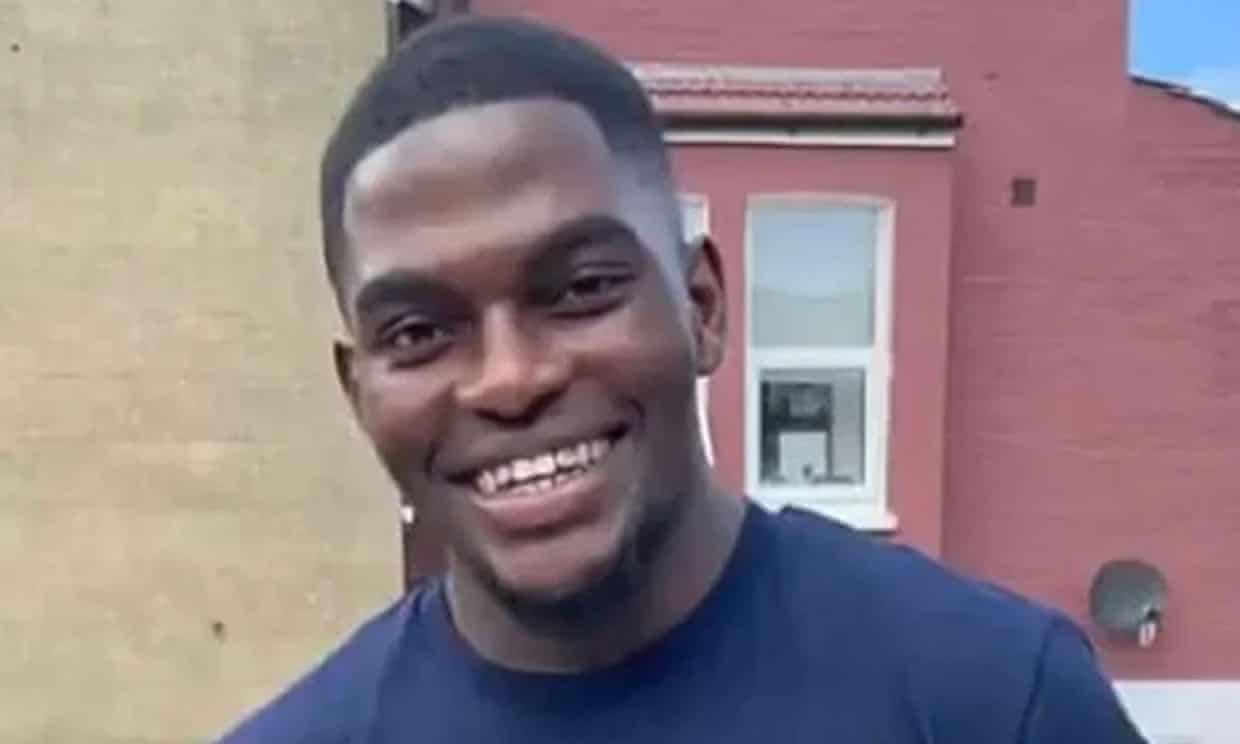The Metropolitan police officer, Martyn Blake, who was acquitted of the murder of Chris Kaba, is now facing the prospect of a disciplinary hearing due to allegations of gross misconduct related to his use of excessive force, as determined by the police watchdog.
This ruling is likely to incite strong reactions from both the Met’s firearms unit and its management.
Chris Kaba was shot once in the head by Sergeant Blake through the windshield of the vehicle he was operating in South London in September 2022, despite being unarmed at the time.
Kaba had a history of violent crime, having been recorded on CCTV shooting a man at a nightclub in East London just months before the incident. He was reportedly an alleged key member of the 67 gang.
Blake, unaware of Kaba’s criminal background when he discharged his weapon, claimed he acted out of fear that Kaba would run over officers as he attempted to flee after being boxed in by police.
Despite facing pressure to abandon the case, the Independent Office for Police Conduct (IOPC) ruled that Blake must undergo a misconduct hearing, highlighting months of behind-the-scenes conflict between the IOPC and the Metropolitan Police, which opposes this decision. Ultimately, the IOPC exercised its legal authority to ensure the hearing would occur.
Since his swift acquittal by a jury at the Old Bailey, which lasted only about three hours, Blake has been promoted to inspector and has returned to duty following a two-year suspension.
The IOPC’s case will assert that Blake’s decision to fire was unjustifiable under the circumstances, rendering the shot fired as excessive force.
During the trial, it was revealed that police had intercepted Kaba’s Audi without knowing his identity, only linking it to a shooting from the previous night. When officers surrounded the vehicle shortly after, Blake, positioned in a police car that obstructed Kaba’s escape route, opened fire, fearing for his colleagues’ safety.
Blake defended his actions as necessary to incapacitate Kaba, whom he believed was using his car as a weapon while making a desperate attempt to flee.
Prosecutors contended that the Audi was boxed in almost immediately and couldn’t escape or pose a danger to officers at the moment Blake fired. While it was acknowledged that Kaba attempted to escape, the vehicle’s maximum speed during the standoff was just 12 mph.
Concerns about the potential walkout of armed officers in London if Blake had been convicted of murder led to the government preparing contingency plans to deploy troops to maintain law enforcement.
The IOPC reviewed its initial ruling and reaffirmed the position that Blake should be subjected to a disciplinary hearing. They clarified that the standard for a misconduct hearing is less stringent than that of a criminal trial, stating: “Where the case-to-answer threshold is satisfied, there need to be compelling reasons to avoid directing misconduct proceedings.”
Amanda Rowe, the IOPC director, acknowledged the emotional implications this decision carries for Kaba’s family and Sgt. Blake, recognizing the significant public interest, especially within Black communities and the broader law enforcement circle.
The Metropolitan Police signaled its intention to appoint a chief officer from another force to oversee the hearing, emphasizing their persistent disagreement and the ongoing stress this brings to Blake, referred to as NX121.
Assistant Commissioner Laurence Taylor remarked, “NX121 made a split-second decision driven by a protective instinct for his colleagues and the public.”
“We recognize that this process will impose further strain on NX121 and our firearms officers, who courageously maintain security in London.”
“We must refrain from any discussions that could compromise NX121’s right to a fair hearing.”
Kaba’s family accused the Metropolitan Police of intensifying their suffering: “Martyn Blake’s actions were profoundly wrong. Our heartache over Chris’s death is still immense – this incident should never have occurred.”
“The promotion of Martyn Blake after the verdict only compounded our grief, reflecting a blatant disregard for our loss. He should no longer serve as a police officer; he must lose his job.”
The schedule for an inquest into Kaba’s death has yet to be established. A governmental review is considering measures to ease the prosecution of officers, with claims that law enforcement personnel often face unjust trials or disciplinary actions merely for fulfilling their duties.
Matt Cane, General Secretary of the Met Police Federation, described the IOPC’s ruling as absurd, likely to disturb police officers across London and beyond.
“Officers should not jeopardize their careers or freedoms for actions deemed lawful and appropriate by a court of law,” he stated.
“This is not accountability; it does not serve the public interest. It is neither just nor fair. We are committed to vigorously defending Sgt. Blake in any forthcoming proceedings.”

